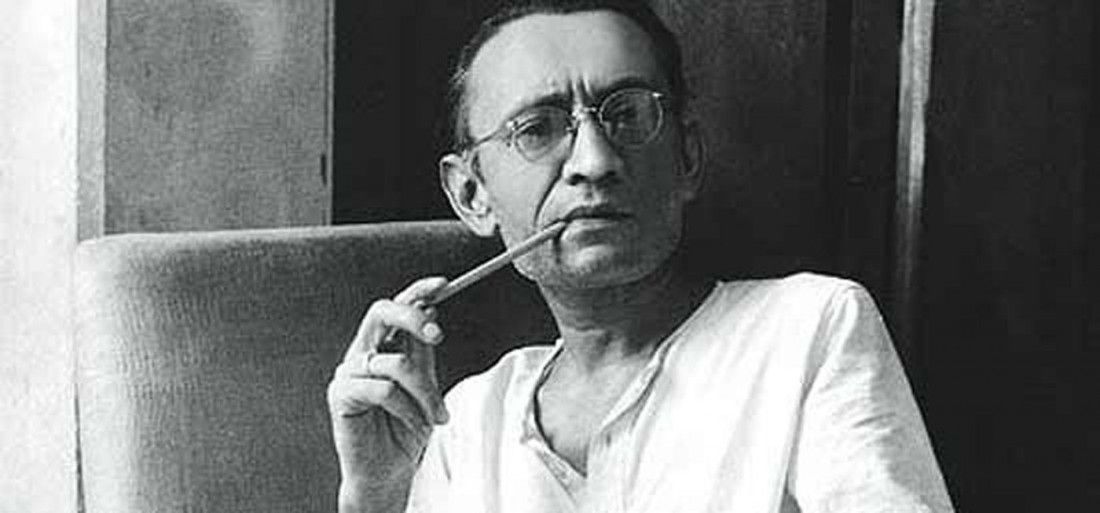Each time Saadat Hasan Manto changes position in his 63-year-old grave in Lahore, “wondering whether he is a better short story writer than God”, the subcontinent, more than any other part of the world that recognized his genius belatedly, goes into raptures. Some recent films, books, and stage adaptations to do with the great writer and liberal humanist provide a legitimate reason to explore his abhorrence of active politics even while being rooted in a deep awareness of the social and economic realities of the times in which he lived. Practically everybody talks of his literary brilliance, but not many appear to have an opinion about his unique, unbending political mind.
One would have thought that a man of Manto’s egalitarian temperament and commitment to the poor and the oppressed would opt for life-membership of one or more of the organizations of Leftist writers and artists of Bombay in the 1940s. But his inherent distrust of labels and dogmas prevented him from getting too close to the so-called progressives. In their turn, these bodies, which counted in their ranks intellectuals with a marked Moscow tilt, maintained a calculated distance from freethinkers like Manto. To characterize his distance from political figures as neutrality or opportunism is to do grave injustice to the literary statesman of principles.
The Delhi writer and scholar, Tarannum Riyaz, had observed: “Manto appears to be quite impressed by socialism, but he does not recognize it as the prescription for the political and economic problems of India.
He refuses to endorse any particular political ideology… It is a sad commentary on the history of Urdu literature in India that Manto did not receive the recognition that was due to him merely because some prominent progressive writers dismissed him as a reactionary.”
A striking feature of Manto’s life and legacy was his opposition to the culture of overlordship emanating from the State, the socio-religious establishment, ideologies and parties, big capital, or the intellectual elite. He possessed an open mind on every subject under the sun, notably the real connections between poverty, sex and violence; an open heart that counted meanness and backbiting as its principal enemy, and a tongue that freely, if not always judiciously, articulated what went on inside his frenzied head. What he wrote was enough to bring upon him the neglect and marginalization that took decades after his untimely death to be reversed.
Manto’s reaction to being called a reactionary was characteristically Mantoesque — unapologetic, unsparing : “I greatly detested the so-called communists. I could not appreciate people who talked about ‘the sickle and the hammer’ while sitting in comfortable armchairs... Maybe, the people who used this sweat to earn wealth, and used it as ink to write detailed manifestoes, are sincere people. However, you will pardon me if I consider them to be impostors.”
If Manto had no use for “these charlatans [who] were using the prescription proposed by Kremlin”, the pilgrim through the lower depths was also alarmed by creeping American influences on the society and polity of infant Pakistan to which he had been banished by forces beyond his control. To understand the writer’s political vision, one must be able to appreciate his ability to be even-handed when it came to seeing through the designs of the two superpowers competing for possession of the soul and substance of the two newly-independent countries, and the subsequent impact the development had on the national liberation movements in many countries of Asia and Africa.
In one of nine letters addressed to Chacha Sam, Manto predicted: “We will have buses fitted with American tools. We will have Islamic pajamas stitched by American machines. We will have clods of earth ‘untouched by hands’ from the American soil. We will have American folding stands for the Holy Quran and American prayer-mats.” Manto’s persecution at the hands of the mullahs and their flock, or those who saw their political destiny in the Muslim League, had much to do with his perspicacious foretelling of events that unfolded in course of time. Neither the State nor the church forgave him for his accurate plain-speaking, clothed variously in irony, sarcasm, horseplay or ribaldry.
Manto may not have been actively involved in politics, but it was absurd of his critics to claim that he was innocent of the political realities. Rather, it was his political awareness which saved him from being predictable and uncreative after a while — the fate of many of his contemporaries who chose to be drummer-boys of this or that bloc.
There is reason enough to think that Manto turned out to be the kind of writer he was largely because of his intimate association with both the fickle and fulsome aspects of the Bombay film industry. For, in the Bombay of his day, he discerned that cosmopolitanism, that diversity, that engagement with the brutal, the bizarre and the beautiful, which together prevented him from jumping to doctrinaire conclusions of this or that kind.










